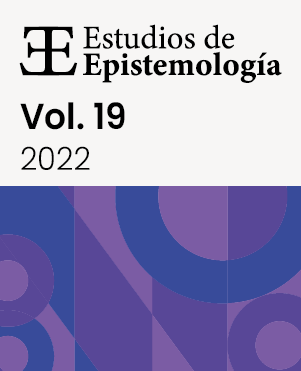Popper’s critical rationalism. The ethical backdrop of his epistemic proposal

Published 2022-03-01
Keywords
- Critical rationalism,
- open society,
- rationalist attitude
How to Cite

This work is licensed under a Creative Commons Attribution-NonCommercial-NoDerivatives 4.0 International License.
Abstract
Popper’s critical rationalism lie in an attitude motivated for a moral decision. This attitude is closely linked to the belief in the unity of humanity, and has a direct impact on the way in which individuals relate each other when addressing problems in social life. In addition, it is characterized by transferring to the level of opinions in general two rules present in all legal proceedings: both parties must be heard, and whoever is a party to the case cannot be a good judge. From these bases, it is possible that the ideals of impartiality and responsibility before others emerge, and for that reason their rationalism supposes promoting equality, the idea that every human being has the right to be heard and to defend their arguments. This paper will try to show that in Popper's philosophy the methodological rules for scientific activity that enable the progress of knowledge rest on axiological aspects, so the latter have priority over epistemic aspects.
